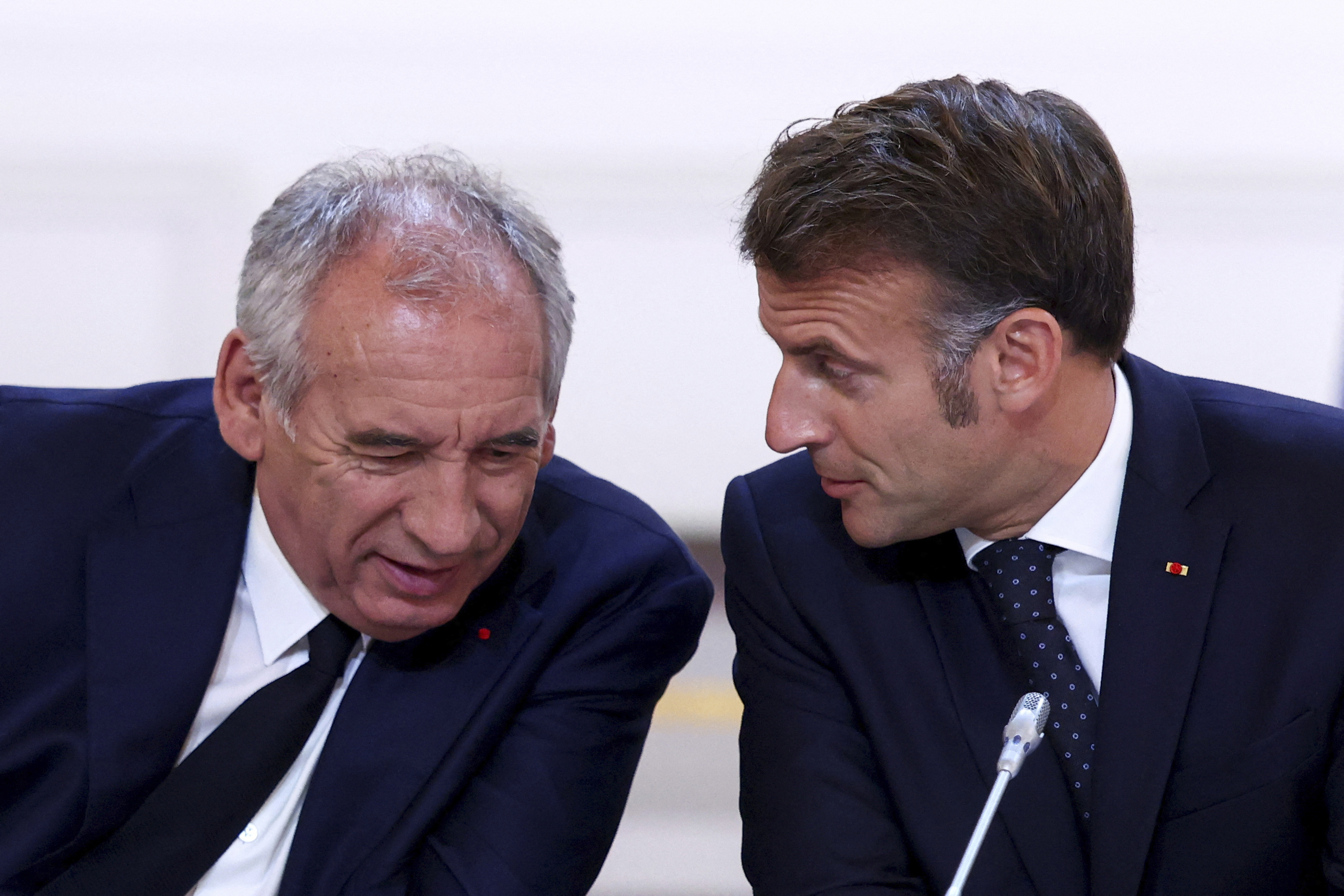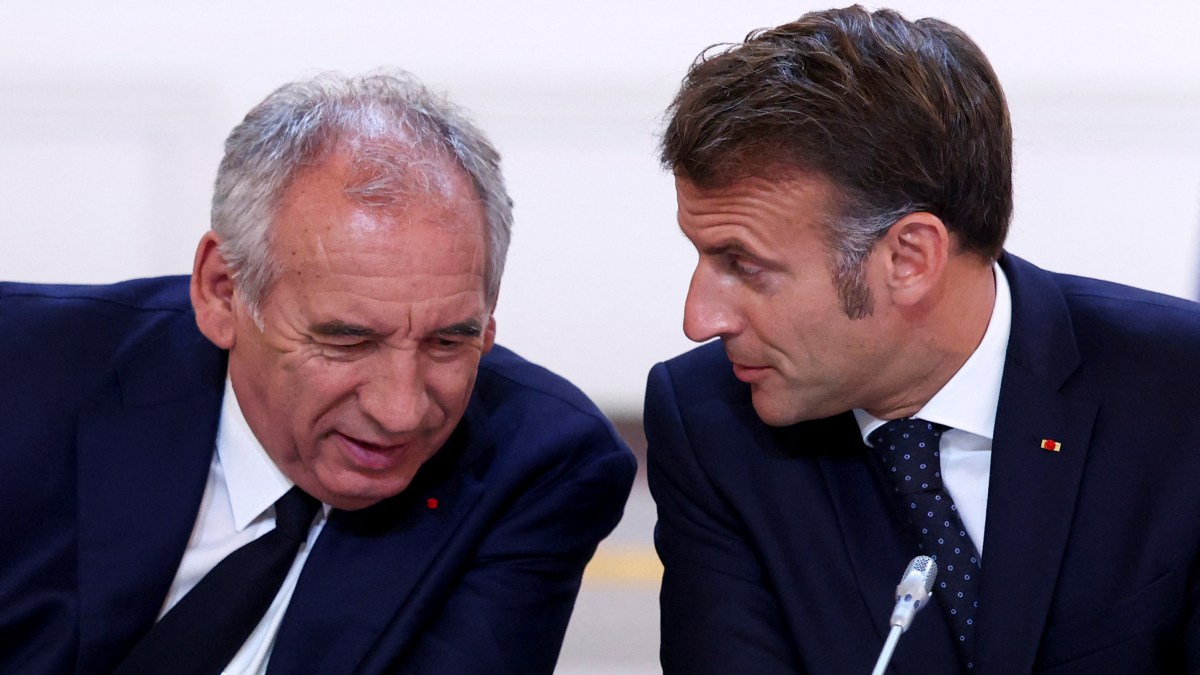
François Bayrou, left, has called a vote of confidence on the question of whether France’s financial crisis constitutes a national emergency
TOM NICHOLSON/AP
With less than two years to go of his ten years in power, it is clear that President Macron has failed in his mission to solve France’s economic problems. Growth is sluggish and the spiralling budget deficit has precipitated a crisis which looks likely to bring the government down. The immediate issue is the attempt by Mr Macron’s prime minister, François Bayrou, to bring down public spending. His budget, which attempts to reduce the deficit from 5.8 per cent of GDP to a still formidable 4.6 per cent, includes €44 billion of spending cuts and the abolition of two of the country’s 11 public holidays. (England, for comparison, has eight.)
The budget is unpopular. The public holiday measure is opposed by 86 per cent of the public, and there have been online calls for a general strike to “block everything” on September 10. Since Mr Macron’s centrist party holds only a third of the seats in parliament, the prime minister will struggle to get his budget enacted. Financial markets are nervous at the prospect of further instability in a country that has had four prime ministers in two years. The difference between French and German interest rates has risen sharply. France now pays a higher interest rate on its debt than Greece (though less than Britain). The finance minister has suggested that France could be forced to turn to the International Monetary Fund, and thus face the national humiliation that Britain did when it found itself in a similar position in 1976.
In order to regain the initiative, Mr Bayrou has called a vote of confidence next month. It will not be on the budget, but on the question of whether the crisis in public finances constitutes a national emergency. France’s addiction to state funding is a slow-burning crisis. The government spends about 57 per cent of GDP in France, compared with 44 per cent in Britain. It has not balanced a budget since 1974. Loose spending during the pandemic and the energy crisis in the aftermath of the invasion of Ukraine have exacerbated the problem. France’s debt to GDP ratio stands at 113 per cent, compared with the UK’s 96 per cent.
• Macron is in the spotlight, which is exactly where he wants to be
Mr Macron faced tumultuous protests in 2018 over proposed carbon taxes on fuel and in 2023 over the retirement age — both attempts to improve the fiscal position. The carbon taxes were dropped. Mr Macron succeeded in raising the retirement age from 62 to 64 only by using a presidential decree, for which he was widely criticised. Mr Bayrou’s immediate predecessor, Michel Barnier, was toppled last December over a similarly unpopular budget.
Mr Bayrou seems unlikely to get the endorsement he seeks. Jean-Luc Mélenchon, leader of the left-wing party France Unbowed, and Marine Le Pen, leader of the right-wing National Rally, are both determined to use the crisis to their advantage, and have called for new elections. Mr Bayrou hopes to persuade the Socialists to vote with him, but they seem disinclined to do so.
Still, Mr Bayrou is to be congratulated. It is a far, far better thing he does to sacrifice his own head to jolt his countrymen out of their dreamlike state. Britain’s fiscal position is only slightly less dire than France’s, but even though Sir Keir Starmer’s political position is far stronger than Mr Bayrou’s he swiftly bolted in the face of opposition to proposed benefits cuts. Had he displayed Mr Bayrou’s mettle, Sir Keir would have succeeded.
